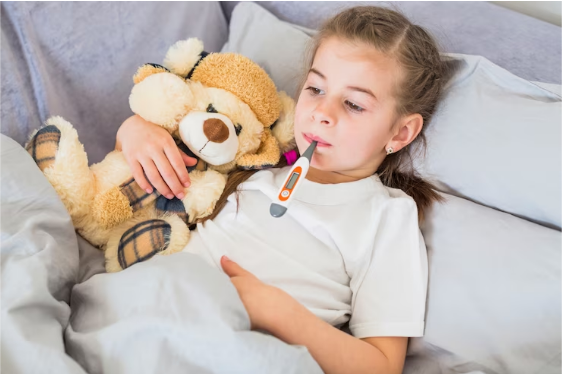4 Most Common School-Age Illnesses

Among all the issues that students face throughout their academic lives, health problems are the most repetitive and concerning ones. Despite ensuring proper hygiene, physical activity and a healthy lifestyle, certain health problems will affect students no matter what. However, most of these common health problems affecting school-going children can be treated effectively by taking proper medication and following a few lifestyle changes.
Students at school and even while playing outside are exposed to the environment where they breathe in the air which is contaminated with dust, germs, viruses and even bacteria. The inhalation of such air daily becomes the reason for making students ill.
To learn about the most common school illnesses and how to prevent them, keep reading this article.
-
Head Lice
Lice are not dangerous but they are contagious. Lice can be defined as a tiny parasite that lives in the hair, feeds on scalp blood and grows in numbers by laying eggs. Their presence in the hair can make the scalp itchy and red. Due to constant itchiness small bumps may appear on the scalp. If you feel your kid has lice, lice screening gila county az can help.
At-home treatments include shampooing hair with anti-lice shampoos and putting anti-lice lotion in the hair. After these treatments, you can help your school-going child get rid of nits using a nit comb which is a fine-tooth comb.
-
Conjunctivitis (Pink Eye)
Conjunctivitis is a scientific term for the inflammation of the eye called pink eye. The white part of the eye is covered by a membrane and that membrane gets inflamed. This can occur usually due to viruses, bacteria or any other allergy. The common symptoms may involve itchiness, watery eyes, redness and swelling as well. In case of severe issues, you can get assistance from eye doctor blackstone va.
However, it is a contagious disease that may spread from one student to the other easily. The preventions to avoid the spread of the disease include constant washing of hands and not touching the eyes. While eye drops suggested by the doctor can be used as a treatment.
-
Food Poisoning
Students usually eat food from the cafeteria which is sometimes stale, uncovered, and contaminated. The intake of contaminated food results in a serious health condition called food poisoning which is a major issue too. The child suffering from food poisoning may feel abdominal pain, vomiting, diarrhea etc. If the condition gets severe the symptoms of chill and fever may also appear. As a precaution, victims must maintain a good intake of fluids and avoid solid food and dairy products.
-
Influenza
The common and layman term for influenza is flu. It occurs as a result of a virus named influenza which spreads with the infected person’s sneezing and coughing. Sometimes flu is followed by body aches, sore throat and fever. Home-made remedies can ease the symptoms but in case of severe symptoms, a child needs to be taken to the doctor.




